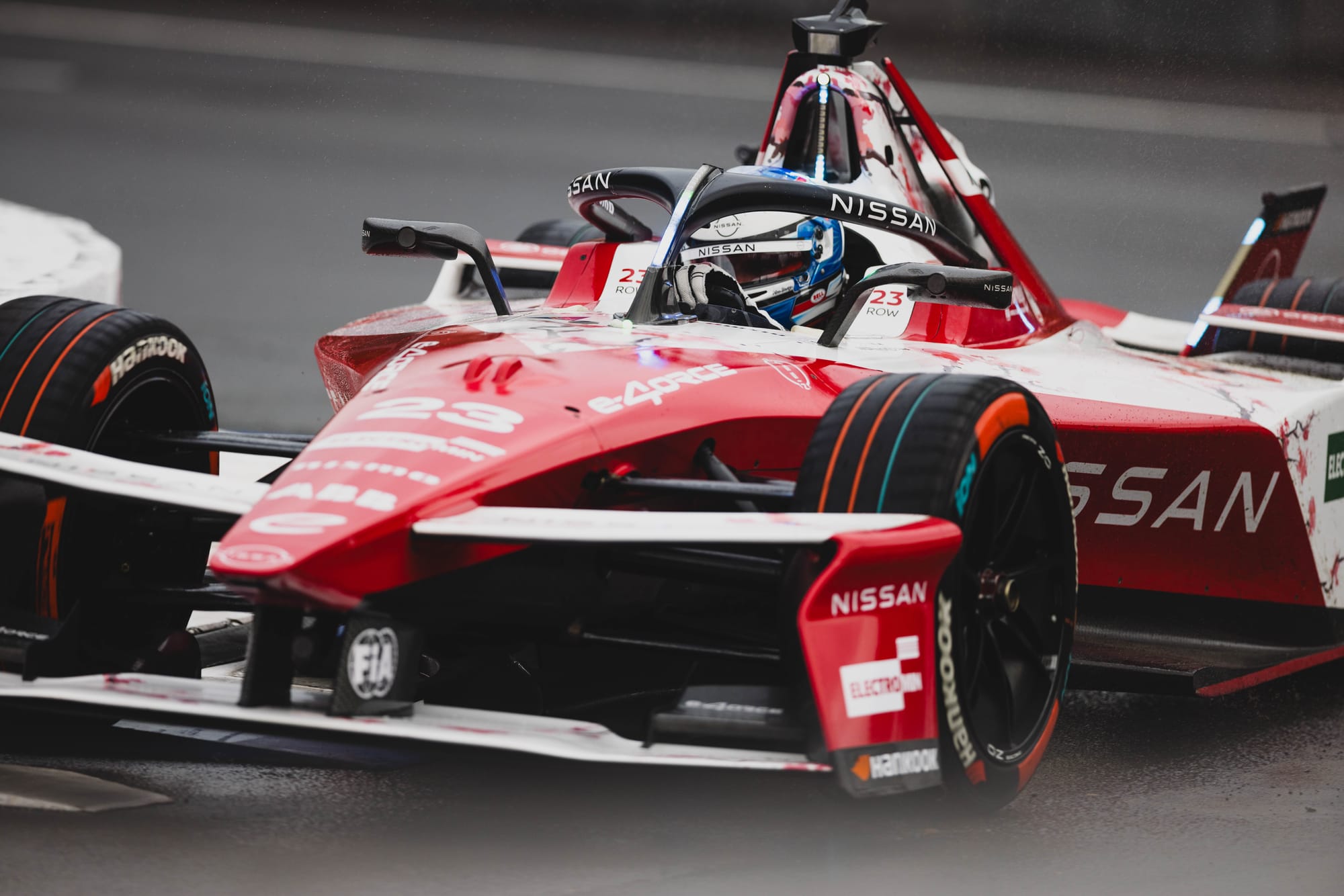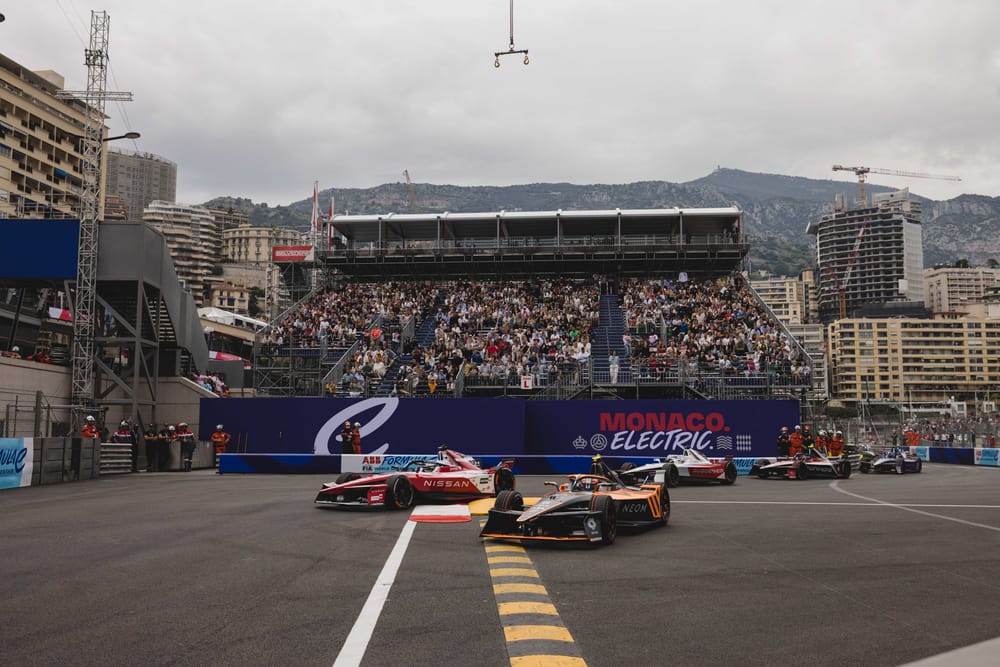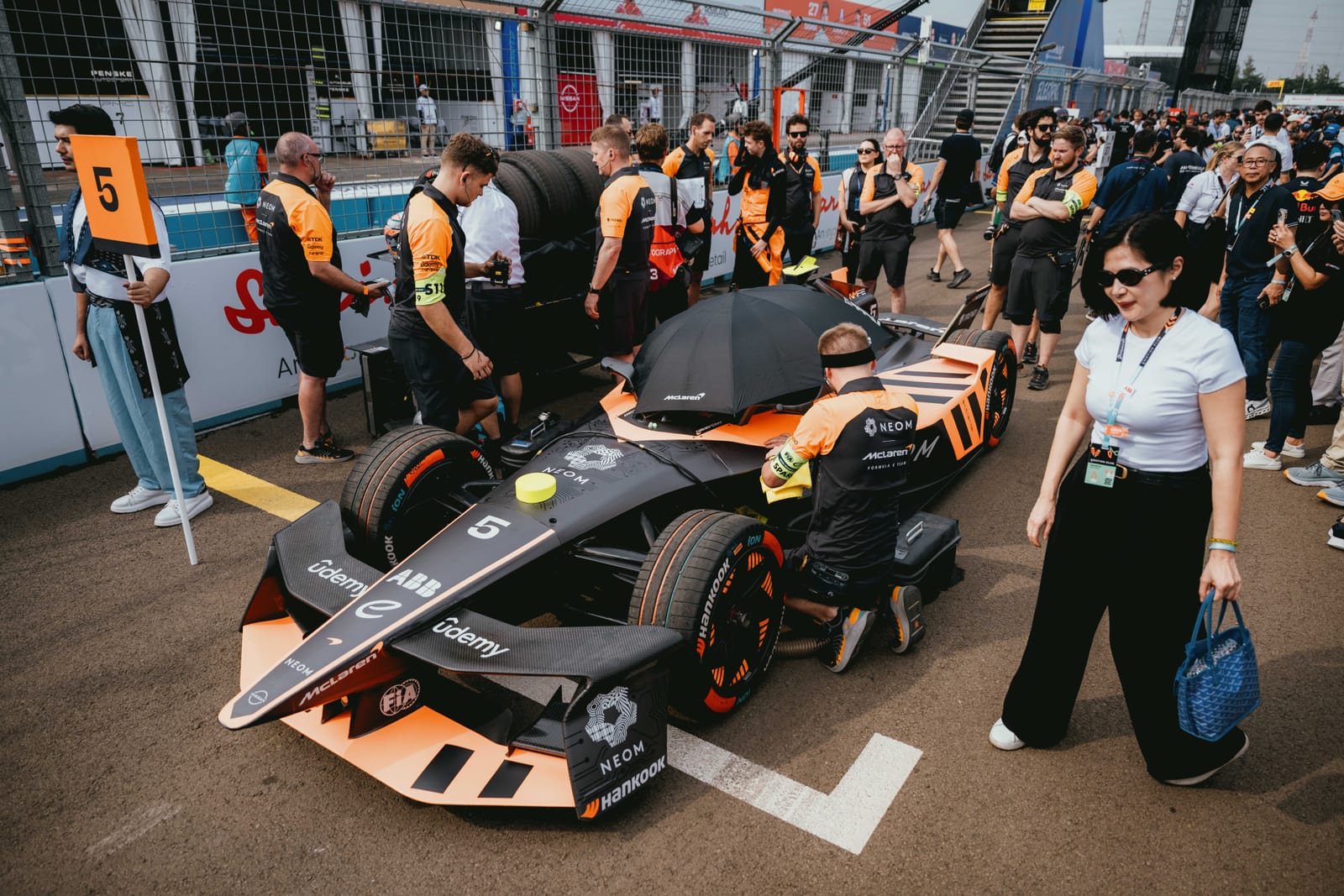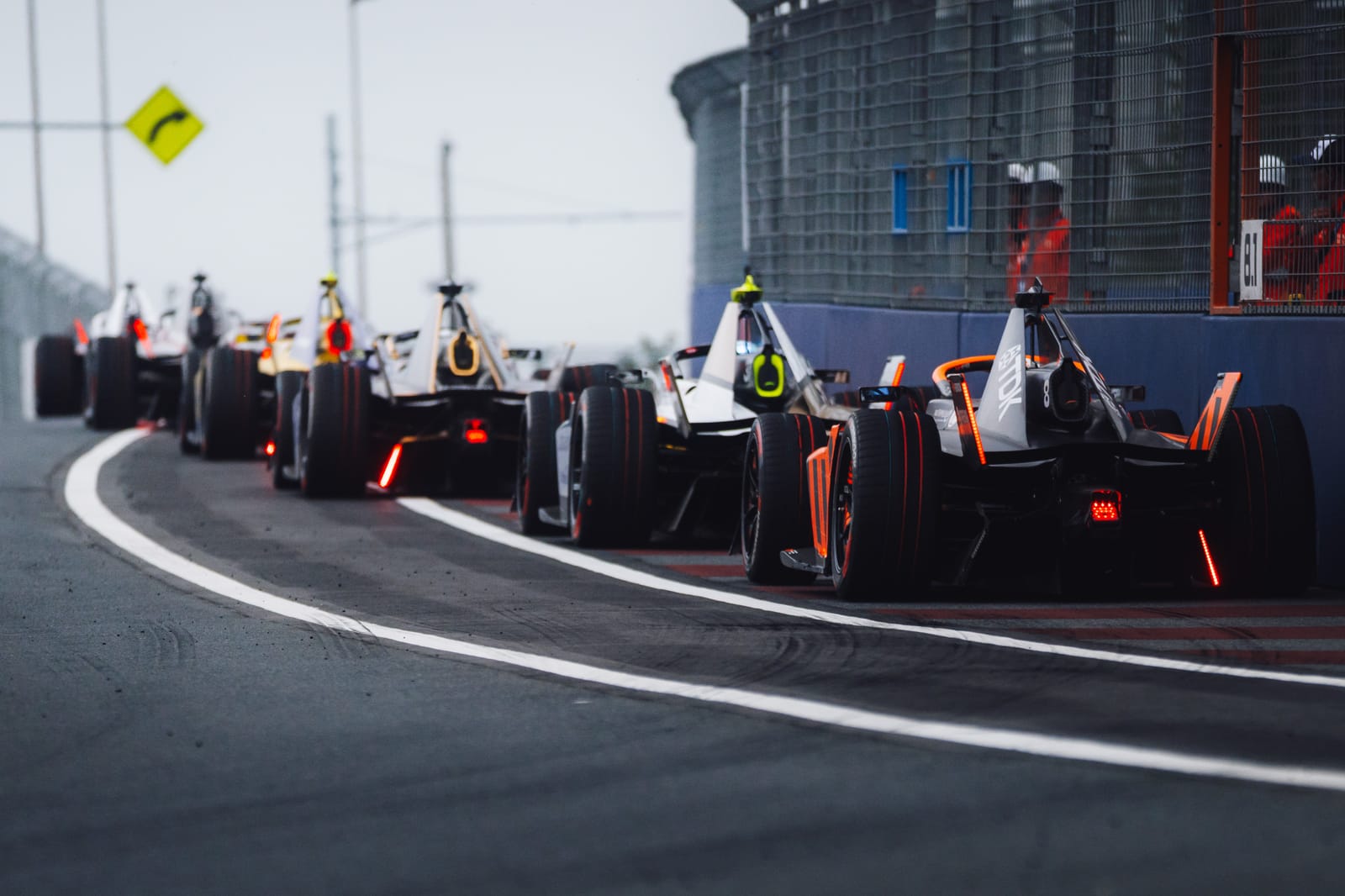The McLaren Formula E team's imminent demise is also bad news for current manufacturers' championship leader Nissan.
With efforts to save the McLaren team and relaunch it under a new identity failing, Nissan loses its customer team and development ally overnight.
It's also a huge blow to its chances of a manufacturers' crown next season. The top two cars from each manufacturer - regardless of which team they're from - score in each race in that contest, and McLaren has contributed to Nissan's tally at nine of this year's 12 races so far. That has played a very big role in its current position of leading the championship by three points over Porsche.
But McLaren's exit reduces Nissan's presence on the grid by 50% and leaves it outnumbered six cars to two against current main rival Porsche, which has both Andretti and the rising Kiro team as customers who can score for it.
In real terms this means both sporting kudos and financial reward are instantly compromised for Nissan, probably Formula E's biggest manufacturer and one that was the first to commit to the Gen4 era.
"For sure, it's bad news for us, because obviously we reduce our chances to fight for the manufacturers' championship," Nissan team principal Tommaso Volpe told The Race.
"But this is bad news for the championship as well, and for the people working in that team because they are very talented engineers, who deserve to be in Formula E. They contributed to the history of this sport in the last few years. It's just a shame to see them go."
While Volpe shares those genuine sentiments, there will also be frustration that something that affects his team so much happened in the first place and he could do nothing about it.
There are also the mundane but necessary practicalities that will have to be resolved now. McLaren is essentially breaking several contracts by leaving a season early so it will likely have to pay for that with Formula E, Nissan and other suppliers.
Volpe is confident that the McLaren exit and other challenges that Formula E is fighting at present are more of a short-term blip than anything that will become too deeply rooted.
"Formula E is one of the most relevant series for automotive in terms of R&D which is the strength of the sport, but also it is such a difficult moment for automotive, and maybe it is affected a little bit about what happens to the mobility industry and maybe there is just a slowdown of interest due to the slowdown of electrification," he said.
"But that doesn't mean that the trend in the mid and the long term is not positive.
"I think there is still a bright future for Formula E, it is just that in the short term we have some bad news in the car industry. So maybe this is affecting things a little bit."

Nissan, like the other big manufacturers on the grid - Porsche, Jaguar and Stellantis - will also likely have another concern: the real value of their franchises in Formula E right now.
The McLaren exit, the poor shape of MSG and the licence for a 12th team on the grid having remained available since the end of the 2021 season without attracting serious manufacturer interest could be regarded as devaluing the investment of those who hold the other grid spots franchises.
This is perhaps a critical time to address that because consolidating the promise and the potential in Formula E is not quite happening as much as the manufacturers want.
It was a start-up branch of motorsport yes, but it can't go on saying that forever. It is also shaped very differently compared to other motorsport categories. Despite the growth that it claims, it is not consolidated yet. Consumers don't really completely understand what Formula E really is or what it stands for and therefore what positioning it has in the overall solar system of motorsport.
That is why perhaps that in moments of difficulty - such as a team leaving - it suffers more than it really should.
One obvious option would be to just cut the number of licenses to 10 rather than 12 and settle for the 20-car grid that will be the case next season. Doing this and protecting the franchise values of the existing teams - who are investing a lot of capital and already becoming very nervous - would reset some value for those with existing slots on the grid and give extra confidence.
It is known that some competitors are also deeply concerned that one team (Maserati MSG) is essentially under the auspices of the promoter now, as Formula E covers costs to ensure its continued presence on the grid while its future is resolved. Is this a situation that contributes to Formula E growing in a mature and sensible way? You'd have to suggest it isn't really.





